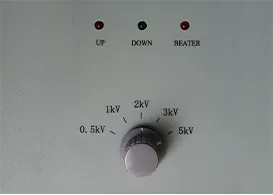 English
English



-
 Afrikaans
Afrikaans -
 Albanian
Albanian -
 Amharic
Amharic -
 Arabic
Arabic -
 Armenian
Armenian -
 Azerbaijani
Azerbaijani -
 Basque
Basque -
 Belarusian
Belarusian -
 Bengali
Bengali -
 Bosnian
Bosnian -
 Bulgarian
Bulgarian -
 Catalan
Catalan -
 Cebuano
Cebuano -
 China
China -
 China (Taiwan)
China (Taiwan) -
 Corsican
Corsican -
 Croatian
Croatian -
 Czech
Czech -
 Danish
Danish -
 Dutch
Dutch -
 English
English -
 Esperanto
Esperanto -
 Estonian
Estonian -
 Finnish
Finnish -
 French
French -
 Frisian
Frisian -
 Galician
Galician -
 Georgian
Georgian -
 German
German -
 Greek
Greek -
 Gujarati
Gujarati -
 Haitian Creole
Haitian Creole -
 hausa
hausa -
 hawaiian
hawaiian -
 Hebrew
Hebrew -
 Hindi
Hindi -
 Miao
Miao -
 Hungarian
Hungarian -
 Icelandic
Icelandic -
 igbo
igbo -
 Indonesian
Indonesian -
 irish
irish -
 Italian
Italian -
 Japanese
Japanese -
 Javanese
Javanese -
 Kannada
Kannada -
 kazakh
kazakh -
 Khmer
Khmer -
 Rwandese
Rwandese -
 Korean
Korean -
 Kurdish
Kurdish -
 Kyrgyz
Kyrgyz -
 Lao
Lao -
 Latin
Latin -
 Latvian
Latvian -
 Lithuanian
Lithuanian -
 Luxembourgish
Luxembourgish -
 Macedonian
Macedonian -
 Malgashi
Malgashi -
 Malay
Malay -
 Malayalam
Malayalam -
 Maltese
Maltese -
 Maori
Maori -
 Marathi
Marathi -
 Mongolian
Mongolian -
 Myanmar
Myanmar -
 Nepali
Nepali -
 Norwegian
Norwegian -
 Norwegian
Norwegian -
 Occitan
Occitan -
 Pashto
Pashto -
 Persian
Persian -
 Polish
Polish -
 Portuguese
Portuguese -
 Punjabi
Punjabi -
 Romanian
Romanian -
 Russian
Russian -
 Samoan
Samoan -
 Scottish Gaelic
Scottish Gaelic -
 Serbian
Serbian -
 Sesotho
Sesotho -
 Shona
Shona -
 Sindhi
Sindhi -
 Sinhala
Sinhala -
 Slovak
Slovak -
 Slovenian
Slovenian -
 Somali
Somali -
 Spanish
Spanish -
 Sundanese
Sundanese -
 Swahili
Swahili -
 Swedish
Swedish -
 Tagalog
Tagalog -
 Tajik
Tajik -
 Tamil
Tamil -
 Tatar
Tatar -
 Telugu
Telugu -
 Thai
Thai -
 Turkish
Turkish -
 Turkmen
Turkmen -
 Ukrainian
Ukrainian -
 Urdu
Urdu -
 Uighur
Uighur -
 Uzbek
Uzbek -
 Vietnamese
Vietnamese -
 Welsh
Welsh -
 Bantu
Bantu -
 Yiddish
Yiddish -
 Yoruba
Yoruba -
 Zulu
Zulu
The Importance of Monitoring Power Quality for Reliable Energy Systems
The Need for Power Quality Monitoring
In today's technologically driven world, the need for reliable and high-quality power is more critical than ever. Power quality refers to the characteristics of the electrical power supplied to consumers, including voltage, frequency, and waveform stability. Poor power quality can lead to various problems, including equipment malfunction, increased electricity costs, and even damage to electrical systems. This emphasizes the growing need for power quality monitoring, which provides essential insights and solutions for both consumers and utility providers.
Power quality issues can manifest in several forms, including voltage sags and swells, harmonics, flicker, and transient disturbances. For industrial facilities that rely heavily on automated systems and machinery, even a brief disruption in power quality can result in significant downtime and operational losses. Similarly, commercial buildings equipped with sensitive electronic devices can experience malfunctions or reduced lifespan of equipment due to poor power quality. Consequently, businesses are increasingly recognizing the importance of monitoring power quality as a means to protect their investments and ensure smooth operations.
One of the primary reasons for implementing power quality monitoring is to comply with industry standards and regulations. Regulatory bodies often set specific requirements for power quality to safeguard both the utility and its customers. By continuously monitoring power quality, utilities can identify problems and take corrective actions before they escalate into more significant issues. This proactive approach not only facilitates compliance with regulations but also enhances customer satisfaction and trust.
need for power quality monitoring

In addition to compliance, monitoring power quality provides vital data for understanding consumption patterns and improving energy efficiency. By analyzing power quality data, facilities can identify energy-wasting practices, such as unbalanced loads or needless equipment operation during non-peak hours. Implementing solutions based on these insights can reduce energy costs and minimize environmental impact, aligning with sustainability goals that many organizations strive to achieve.
Furthermore, with the rise of renewable energy sources and distributed generation, power quality issues are becoming increasingly complex. Integrating solar panels, wind turbines, and energy storage systems into the traditional power grid can introduce new challenges regarding voltage fluctuations and harmonics. Monitoring power quality within this context is essential not only for maintaining grid stability but also for optimizing the performance of renewable energy systems. Through effective monitoring, utilities can ensure that these systems contribute positively to the grid without compromising power quality.
The advancement of technology has made power quality monitoring more accessible and affordable. Modern monitoring devices can provide real-time data and detailed analysis, enabling stakeholders to make informed decisions. Cloud-based monitoring solutions offer the added benefit of remote access, making it easier for facility managers and utility operators to track power quality metrics anytime, anywhere.
In summary, the need for power quality monitoring has become increasingly important in our electrified world. It not only protects equipment and increases operational efficiency but also helps organizations comply with regulations and improve energy consumption practices. As we continue to embrace new technologies and renewable energy sources, robust power quality monitoring will be essential for maintaining a stable and efficient energy landscape. Investing in power quality monitoring is not merely a technical decision; it is a strategic move that supports long-term sustainability and operational success. Through vigilant monitoring, stakeholders can ensure that the power they depend on remains reliable, efficient, and of the highest quality.
-
Using Distillation Range Testers in the Food and Beverage IndustryNewsApr.16,2025
-
The Impact of IoT on Distillation Range Tester PerformanceNewsApr.16,2025
-
The Best Distillation Range Testers for Extreme ConditionsNewsApr.16,2025
-
How Distillation Range Testers Save Time and MoneyNewsApr.16,2025
-
Distillation Devices for Advanced Separation TechniquesNewsApr.16,2025
-
Common Mistakes to Avoid When Using a Distillation Range TesterNewsApr.16,2025



